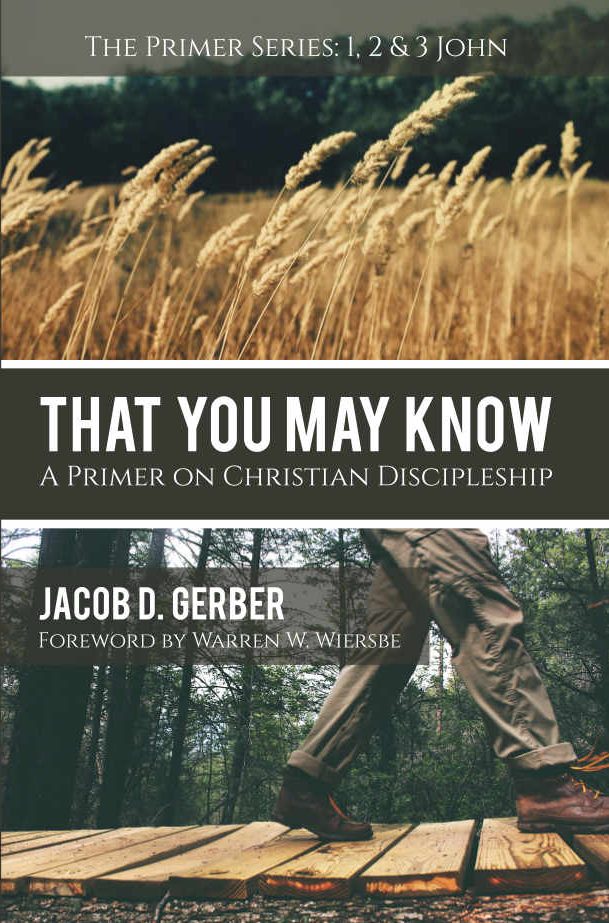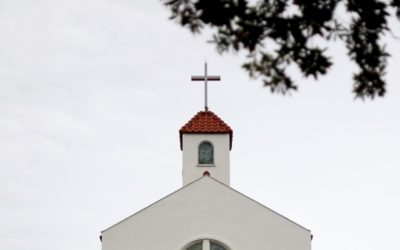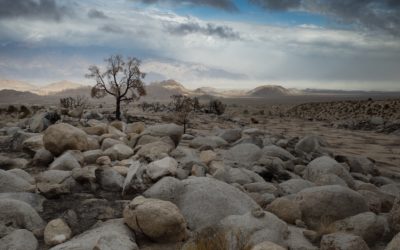Books

While there are many books written about Christian discipleship, there are not nearly enough books on discipleship that primarily expound the Bible itself. The Apostle John wrote three letters, however, with the main purpose of helping disciples to grow.
That You May Know: A Primer on Christian Discipleship is an enriching study that will lead you through John’s teaching on following Jesus as a disciple.
This book is more than a commentary and more than a topical book on the subject of Christian discipleship. Instead, this is a primer on Christian discipleship written as a careful reading of God’s word in 1, 2 & 3 John. It’s ideal for your own individual devotional reading or as a helpful resource for your group Bible study.
Download the First Two Chapters of That You May Know for Free
Bible Studies: Paul's Letter to the Philippians
Studies from my forthcoming pastoral commentary on Paul’s Letter to the Philippians, Have This Mind: A Primer on the Cruciform Life.
Access the complete set of Bible studies from Philippians here.
Philippians 4:10–23: Generosity
Being conformed to the cruciform mind of Christ requires not only our lives, but even our wealth. (Exposition of Philippians 4:10–23)
Philippians 4:2–9: Peace
As those who have received peace with God through Christ, we should seek peace with others and with the world through prayer. (Exposition of Philippians 4:2–9)
Philippians 3:12–4:1: Perseverance
Christians have every reason to stand firm in perseverance in the midst of cruciform suffering: we have the hope of glory in Christ. (Exposition of Philippians 3:12–4:1)
Philippians 3:1–11: Righteousness
Sinful human beings cannot become righteous through keeping the law. We need the righteousness of Jesus Christ imputed to us by grace, through faith. (Exposition of Philippians 3:1–11)
Philippians 2:19–30: Servanthood
The soaring theology of the Christ hymn inspires more than our worship—it inspires our tedious, unnoticed, selfless servanthood. (Exposition of Philippians 2:19–30)
Philippians 2:12–18: Sanctification
God calls us to struggle and strive toward our sanctification, but he promises that he will be the One to accomplish the work. (Exposition of Philippians 2:12–18)
Bible Studies: The Gospel of John
Access the complete set of Bible studies from the Gospel of John here.
John 21:1–25: The Shepherds of Jesus
In John 21:1–25, John closes his Gospel with a humbling reality: Jesus entrusts his flock to faltering shepherds. (Exposition of John 21:1–25)
John 20:19–31: The Commission of Jesus
Jesus is risen from the dead, but he will soon ascend to the Father. How, then, will the world come to believe in him? (Exposition of John 20:19–31)
John 20:1–18: The Resurrection of Jesus
After dying on the cross to finish his estate of humiliation, Jesus rises from the dead to begin his estate of exaltation. (Exposition of John 20:1–18)
John 19:28–42: The Death of Jesus
At his death, Jesus finishes his work in order to become the firstfruits of a new creation—he ends his estate of humiliation in order to begin his estate of exaltation. (Exposition of John 19:28–42)
John 19:16b–27: The Crucifixion of Jesus
To gain his heavenly kingdom, Jesus must give up every worldly good: worldly purity, worldly possessions, and worldly parent. (Exposition of John 19:16b–27)
John 19:1–16a: The Kingship of Jesus
Jesus’ royal power is not of this world. The kingdoms of this world rage against Jesus, but they cannot harm his kingship. (Exposition of John 19:1–16a)
Bible Studies: The Book of Genesis
Access the complete set of Bible studies from Genesis here.
Genesis 50:1–26: God Meant it for Good
The final chapter of Genesis gives a fitting conclusion to the whole book, and looks forward to the rest of the Bible’s story. God is working all things together for our good. (Exposition of Genesis 50:1–26)
Genesis 49:1–33: The Final Blessing of Jacob
As Jacob comes to the end of his life, he bless all his children—especially to establish the promise of a king. God blesses the world through the King of Israel. (Exposition of Genesis 49:1–33)
Genesis 48:1–22: Blessing for Joseph’s Sons
Jacob reflects back on the gracious favor God has shown him through his lifetime, and Jacob passes on God’s grace through blessing Joseph’s children. God extends unmerited favor to his people. (Exposition of Genesis 48:1-22)
Genesis 47:13–31: Buried in Canaan
Joseph wisely administers food to save the Egyptians, and Jacob insists that Joseph should bury him back in Canaan. God preserves the living and raises the dead. (Exposition of Genesis 47:13–31)
Genesis 46:28–47:12: Few and Evil, the Days of our Sojourning
Even though the Israelites are an abomination in Egypt, they possess something greater: God’s own promises. God makes sojourners into superiors. (Exposition of Genesis 46:28–47:12)
Genesis 45:16–46:27: A Nation Going Down to Egypt
After Joseph reveals himself to his brothers, the Joseph narratives through the end of Genesis shift to a new focus: God is creating a new humanity. (Exposition of Genesis 45:16–46:27)
Bible Studies: Paul's First Letter to the Corinthians
Access the current set of Bible studies from 1 Corinthians here. This series is in progress.
1 Corinthians 16:1–24: Our Lord, Come!
In 1 Corinthians 16, Paul writes about what seems like ministry management issues; however, at heart, Paul is addressing the chief priorities of ongoing life in the church: mercy ministry, the word, and our common hope in Christ’s return. (Exposition of 1 Corinthians 16)
1 Corinthians 15:1–58: The Resurrection
In 1 Corinthians 15, Paul teaches that Christ is the firstfruits of God’s resurrection harvest. The gospel declares that because Christ was resurrected from the dead, so will we also. In this stunning chapter, Paul traces the whole redemptive plan of God, from first creation to the final consummation when Christ returns.
1 Corinthians 14:1–40: Orderly Public Worship: Part 3
In 1 Corinthians 14, Paul teaches that God’s word must have center stage in worship. The reason is simple: worship is a dialogue between God and his people. (Exposition of 1 Corinthians 14:1–40)
1 Corinthians 13:1–13: Love: A Still More Excellent Way
In one of the most famous passages in all the Bible, Paul critiques the Corinthians’ lack of love. Everything is nothing without love. (Exposition of 1 Corinthians 13:1–13)
1 Corinthians 12:1–31: Orderly Public Worship: Part 2
In 1 Corinthians 12, Paul speaks about the diversity and the unity of the body of Christ, teaching that God has arranged and honored every member in the body of Christ. (Exposition of 1 Corinthians 12:1–31)
1 Corinthians 11:2–34: Orderly Public Worship: Part 1
In 1 Corinthians 11, Paul deals with two major issues concerning public worship. First, it is glory for men to rule, and it is glory for women to reveal. Second, Christ delivers himself to us in the Lord’s Supper. (Exposition of 1 Corinthians 11:2–34)
Bible Studies: The Letters of John
Access the complete set of Bible studies from the Letters of John here.
Discipleship according to John
Over the course of John’s Letters, he has worked through three primary themes: (1) Know God, (2) Believe the Gospel, and (3) Love one another. (Summary of 1, 2 and 3 John)
3 John: The Case Study of Gaius and Diotrephes
In 3 John, the Apostle John contrasts living for Christ versus living for self. Everyone is someone’s disciple; what kind of master do you serve? (Exposition of 3 John)
2 John: The Case Study of the Elect Lady
In 2 John, the apostle John gives us a case study of the themes of 1 John. Specifically, John shows how love and truth fit together in the Christian life. (Exposition of 2 John)
1 John 5:18–21: Eternal Life
In the closing section of his First Letter, the Apostle John insists that Jesus Christ is God and eternal life—and that we should therefore keep ourselves from idols. (Exposition of 1 John 5:18–21)
1 John 5:13–17: Prayer
Building on what he wrote about faith in the previous passage, the Apostle John now shifts his attention to prayer—especially prayer for the prodigal brother. (Exposition of 1 John 5:13–17)
1 John 5:1–12: Faith
What is faith? Where does faith come from? How do we get faith? What does faith do? Toward the end of his First Letter, the Apostle John answers these questions. (Exposition of 1 John 5:1–12)
Bible Studies: The Gospel of Luke
Access a handful of Bible studies from the Gospel of Luke here. These were studies written during the Advent season of 2018. At the moment, I do not have plans to continue working through the Gospel of Luke; however, I wanted to make these few studies available online for whomever may benefit from them.
Luke 2:8–20: The Annunciation of the Shepherds
Jesus is glorious, but his glory is veiled. The gospel announces that Jesus reveals ever-increasingly more of his veiled glory by his word and through faith. (Exposition of Luke 2:8–20)
Luke 1:39–56: The Magnificat of Mary
The Advent of Jesus is more than a child for Mary, but the beginning of a new kingdom that will reverse human power entirely. God sent Jesus into this world to overturn the kingdoms of this world. (Exposition of Luke 1:39–56)
Luke 1:26–38: The Annunciation of Jesus
While the glory of the old covenant was external and visible, the glory of the new covenant is spiritual and invisible. God reveals his glory in the humiliation of his Son and in the faith of the humble. (Exposition of Luke 1:26–38)
Bible Studies: The Book of Ecclesiastes
Access the complete set of Bible studies from the Book of Ecclesiastes here.
Ecclesiastes 11:7–12:14: Fear God and Keep His Commandments
The Preacher concludes his book with an exhortation to the young and to the old, to live all of life in the light of eternity. Fear God and keep his commandments. (Exposition of Ecclesiastes 11:7–12:14)
Ecclesiastes 11:1–6: You Never Know!
Although everything is vanity under the sun, the Preacher does not want us to use this world’s vanity as a justification for passivity or inaction. In unsettling uncertainty, take appropriate action. (Exposition of Ecclesiastes 11:1–6)
Ecclesiastes 10:1–20: The Destructiveness of Folly
After spending three chapters talking about the importance of wisdom, the Preacher approaches the issue from another angle: the destructiveness of folly. Leaky wisdom sinks a kingdom (Exposition of Ecclesiastes 10:1–20)
Ecclesiastes 9:1–18: Wisdom is Better
We are absolutely not in control of our own lives, but everything is in the hand of God. So, wisdom relinquishes control and readies for eternity. (Exposition of Ecclesiastes 9:1–18)
Ecclesiastes 8:1–17: Who is Like the Wise?
God’s wisdom trains our eyes to see—not only to avoid the dangers in this life and the next, but to discover God’s good gifts to those who fear him. God’s wisdom enlightens the eyes. (Exposition of Ecclesiastes 8:1–17)
Ecclesiastes 7:15–29: Fearing the Lord vs. Scheming
Wisdom is far off and very deep. Thus, wisdom cannot be found in pretense, nor in pragmatics, nor in people. The fear of the Lord is the beginning of wisdom. (Exposition of Ecclesiastes 7:15–29)
Bible Studies: The Gospel of Matthew
Access the complete set of Bible studies from the Gospel of Matthew here.
Matthew 22:15–22: The Loyalties of a Pilgrim People
By telling us to return to Caesar what is Caesar’s, Jesus instructs us to conduct ourselves honorably as God’s pilgrim people in a foreign land. (Exposition of Matthew 22:15–22)
Matthew 22:1–14: Many Called; Few Chosen
In the parable of the wedding feast, Jesus shows us the lavish love of God and the foolish pride of unbelief. Come to the wedding feast! (Exposition of Matthew 22:1–14)
Matthew 21:33–46: The Rejected Cornerstone
Jesus confronts religious leaders that they cannot successfully reject his authority: “Kiss the Son, lest he be angry, and you perish in the way.” (Exposition of Matthew 21:33–46)
Matthew 21:28–32: Doing the Will of the Father
God wants not only a “right away” agreement with him, but “all the way” obedience. True faith includes knowledge, assent, and trust. (Exposition of Matthew 21:28–32)
Matthew 21:23–27: By What Authority?
The only legitimate authority is the authority that is given from heaven. Even Jesus came to do the will of his Father in heaven. (Exposition of Matthew 21:23–27)
Matthew 21:18–22: “If You Have Faith”
When Jesus withers the fig tree, he does so to teach an important lesson: spiritual fruitfulness comes by faith, not by formalism. (Exposition of Matthew 21:18–22)













































